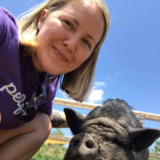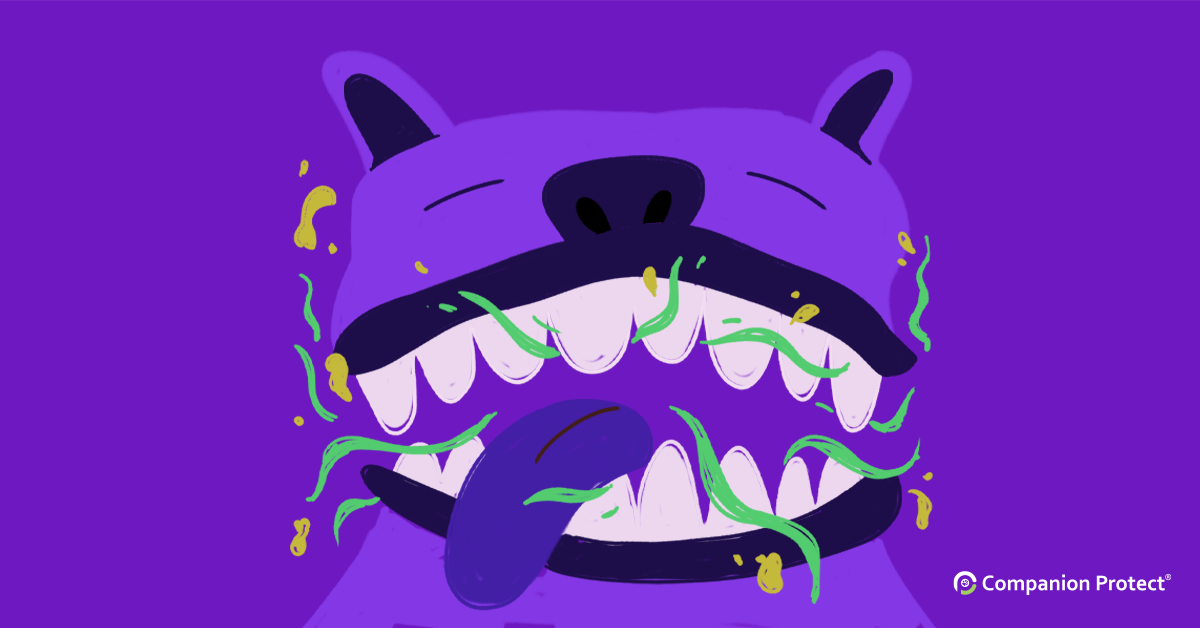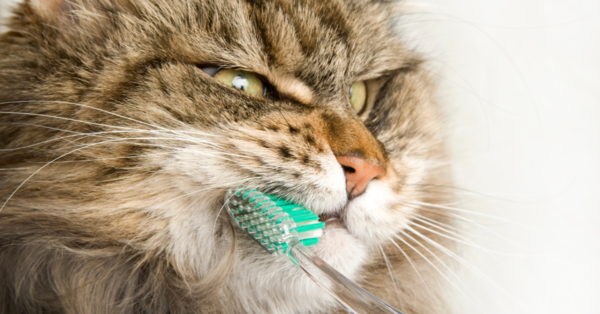Does your pet’s mouth smell like garbage?
Dental disease is one of the most common medical conditions seen by veterinarians. It’s said that anywhere between 50-90% of all cats over age four and more than 80% of all dogs over age three have some form of dental disease, caused by plaque and tartar buildup. Thankfully, there are ways to prevent the buildup of plaque and tartar at home, like tooth brushing and dental cleanings! Here are 14 products we recommend to help prevent pet dental disease.
Tooth Brushing
Tooth brushing is great for keeping the plaque and tartar at bay. Felix and Rover may not enjoy it, but there are ways to make it a treat – literally! To prevent pet dental disease at home, we recommend trying tooth brushing products that contain The Veterinary Oral Health Council (VOHC) seal of acceptance. These products have been proven to reduce the accumulation of plaque and tartar. If you have concerns for your pet’s oral health, or are unsure about what product would be best for them, please contact your veterinarian.
Dental Cleanings
Dental cleanings help remove plaque and tartar buildup, but since anesthesia is required, it can cost anywhere from $300 – $7,000. Meow-ch! Regardless of cost, dental cleanings are highly recommended throughout your pet’s lifetime. During a dental cleaning, your vet may/can extract any loose or decayed teeth that promote dental disease.
Wondering if your BFFL is in current need of a tooth extraction? Check for signs of tooth decay, chipped or loose teeth, swollen gums, or monitor for signs of any oral pain. According to American Kennel Club, the following are signs your pet is experiencing oral pain:
- Bad breath
- Vomiting
- Whimpering
- Excess drooling
- Red or swollen gums.
- Pawing at the mouth.
- Change in activity level.
- Decreased interest in eating dry food.
- Decreased interest in eating hard treats.
- Change in behavior – protective reactions.
- Resistance to head or mouth area being touched.
- Decreased appetite, slower eating, or dropping food while chewing.
If your pet is experiencing any of the above, you should contact your veterinarian as soon as possible. To avoid dental emergencies, we recommend annual check-ups with your veterinarian to assess your pet’s overall health – including their oral wellbeing! With coverage from Companion Protect, you can rest easy knowing annual exams are covered!
We want what’s best for your pet — for them to live a long and healthy life, and their dental health is no exception! Though Companion Protect doesn’t cover preventive dental treatments, we do cover any dental treatments related to an accident, including oral mass removal.
Learn more about our coverage and what sets Companion Protect apart from the pet insurance noise.
 SHAYNE STOREY
SHAYNE STOREY
Marketing Specialist
Shayne has a few years experience in digital marketing, content creation and animal care, with her previous role as New Media Intern at The Humane League. In her free-time she loves to cycle (with her dog on her back) and practice yoga. A social cause she cares about is climate change, the welfare of factory farmed animals, and racial equality. Her favorite food is vegan mac & cheese.




